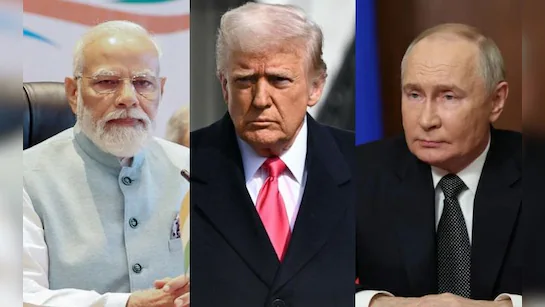In the intricate dance of global politics, few rivalries are as consequential as that between the United States and China. Recent developments, particularly surrounding U.S. foreign policy under Donald Trump’s administration, underscore the delicate balance of power, economic interdependence, and diplomatic brinkmanship shaping the world order. A key episode in this saga involves the cancellation of a planned trip by Taiwan’s President Lai Ching-te to Latin America, which included a proposed stopover in New York—a move reportedly scuttled due to pressure from China. This incident, coupled with ongoing trade disputes, reveals the complexities of U.S.-China relations and the limits of American leverage in the face of Beijing’s assertive posture.
Taiwan: A Flashpoint in U.S.-China Relations
Taiwan remains one of the most volatile issues in U.S.-China relations. China considers Taiwan an inseparable part of its territory under its “One China” policy, while Taiwan asserts its sovereignty as a democratic nation. The U.S., while not formally recognizing Taiwan as a sovereign state, maintains robust unofficial ties, including arms sales and diplomatic engagements, which Beijing views as provocations. The reported cancellation of President Lai Ching-te’s Latin America trip, as covered by The Guardian and Financial Times, highlights China’s ability to influence U.S. decisions. Lai’s planned stopover in New York was allegedly opposed by the Trump administration following objections from Beijing, which warned of consequences for hosting Taiwan’s leader.
This incident is emblematic of China’s growing assertiveness. Beijing has intensified military drills around Taiwan, signaling its intent to reclaim the island—potentially by force—within the coming years. The U.S., despite its rhetorical support for Taiwan, appears cautious about escalating tensions. The decision to dissuade Lai from stopping in New York suggests that Washington is wary of antagonizing China, particularly when economic stakes are high. As Reuters reported on July 8, 2025, China warned the Trump administration against reimposing tariffs, threatening retaliation that could disrupt global supply chains. This economic leverage underscores why the U.S. treads carefully on Taiwan-related issues.
The Economic Leverage: China’s Supply Chain Dominance
At the heart of U.S.-China tensions lies their deep economic interdependence. China’s dominance in global manufacturing—from consumer goods like clothing and electronics to critical components in automobiles and household appliances—gives it significant leverage. As highlighted in the transcript, China bluntly reminded the U.S. that much of what Americans consume is “Made in China.” Imposing tariffs or disrupting trade could backfire, as rebuilding domestic manufacturing capacity would take years and require substantial investment. Al Jazeera and The Hindu have reported on ongoing trade negotiations, with U.S. and Chinese officials meeting in Stockholm in July 2025 to avert a tariff escalation. These talks, described as “constructive” by U.S. officials, reflect Washington’s desire to avoid a full-blown trade war.
The Trump administration’s initial bluster about imposing tariffs has softened, with U.S. Treasury Secretary Scott Bessent suggesting a possible 90-day extension of a tariff truce, as noted in a Bloomberg interview. This retreat from earlier threats illustrates China’s ability to counter U.S. pressure. Beijing’s warning that it would retaliate not only against the U.S. but also against nations aligning with Washington to exclude China from supply chains further amplifies its influence. This dynamic reveals a stark reality: while the U.S. remains a global superpower, its economic reliance on China limits its ability to act unilaterally.
Trump’s Posturing: A Hot Air Balloon?
Donald Trump’s foreign policy has often been characterized by bold rhetoric and unpredictable maneuvers. However, the transcript paints a picture of a leader whose threats lack substance when met with resistance. Described as a “hot air balloon,” Trump’s initial defiance—threatening tariffs and challenging China—appears to deflate under Beijing’s counterpressure. His denial of seeking a summit with Chinese President Xi Jinping, as reported by Al Jazeera, and his claim that any visit to China would only occur at Xi’s invitation, suggest a defensive posture. This contrasts sharply with Trump’s public persona as a dealmaker unafraid of confrontation.
The transcript also references Trump’s exaggerated claims, such as his assertion of brokering a ceasefire in a fictional “Operation Sindoor,” highlighting his tendency to embellish achievements. Such rhetoric may resonate with domestic audiences but falters on the global stage, where China’s calculated responses expose the limits of bluster. The Asia-Pacific Economic Cooperation (APEC) summit in South Korea, scheduled for October 30 to November 1, 2025, could provide a venue for Trump and Xi to meet, as they last did in 2019 at the G20 in Osaka. However, China’s firm stance suggests it holds the upper hand in dictating the terms of engagement.
India’s Strategic Maneuvering
The transcript also draws parallels with India’s approach to U.S. pressure, offering a broader perspective on how nations navigate American influence. Under Prime Minister Narendra Modi, India has resisted U.S. demands for market access in its agricultural sector, even as Trump threatens tariffs. India’s strategy of diversifying trade partnerships—finalizing agreements with the UK, negotiating with Oman, and engaging with European and South American nations—reflects a deliberate effort to reduce reliance on the U.S. market. This aligns with a broader trend among nations seeking to insulate themselves from the unpredictability of U.S. policy under Trump.
India’s stance exemplifies how standing firm against U.S. pressure can yield results. By prioritizing its economic and strategic interests, New Delhi has carved out a space to negotiate on its terms. This approach contrasts with the U.S.’s apparent deference to China on the Taiwan issue, highlighting the varying degrees of leverage nations wield in their interactions with Washington.
The Broader Implications
The U.S.-China dynamic, as illuminated by the Taiwan incident and trade negotiations, has far-reaching implications for global stability. China’s ability to influence U.S. decisions underscores its rise as a peer competitor, challenging the unipolar world order dominated by the U.S. since the Cold War’s end. The Taiwan issue remains a potential flashpoint, with the risk of miscalculation or escalation ever-present. Meanwhile, the economic interdependence between the U.S. and China complicates efforts to decouple or confront Beijing head-on.
For other nations, the lesson is clear: strategic autonomy and economic diversification are critical in navigating the U.S.-China rivalry. India’s approach offers a model for balancing relations with both powers while safeguarding national interests. As the U.S. grapples with its role in a multipolar world, its ability to project power will depend on reconciling its domestic priorities with the realities of global interdependence.
Conclusion
The cancellation of Taiwan’s president’s U.S. stopover and the ongoing U.S.-China trade talks reveal a world where economic leverage and diplomatic pressure shape superpower relations. China’s assertive stance has exposed the limits of U.S. influence under Trump, whose bold rhetoric struggles to match Beijing’s calculated resolve. As nations like India chart their own paths, the global order continues to evolve, with the U.S.-China rivalry at its core. In this high-stakes game, every move counts, and the world watches closely.
References:
- The Guardian: Coverage of Taiwan President Lai Ching-te’s canceled Latin America trip.
- Financial Times: Reports on U.S. opposition to Lai’s New York stopover.
- Reuters (July 8, 2025): China’s warning to Trump on tariffs and supply chain retaliation.
- Al Jazeera: Trump’s denial of seeking a summit with Xi Jinping.
- The Hindu: U.S.-China trade talks in Stockholm, July 2025.
- Bloomberg: Interview with U.S. Treasury Secretary Scott Bessent on tariff truce extension.






